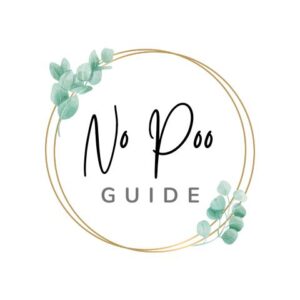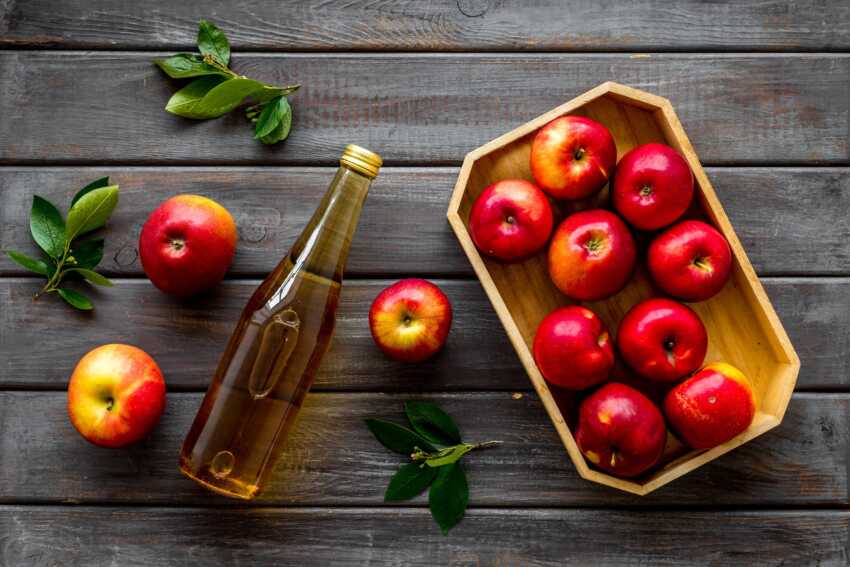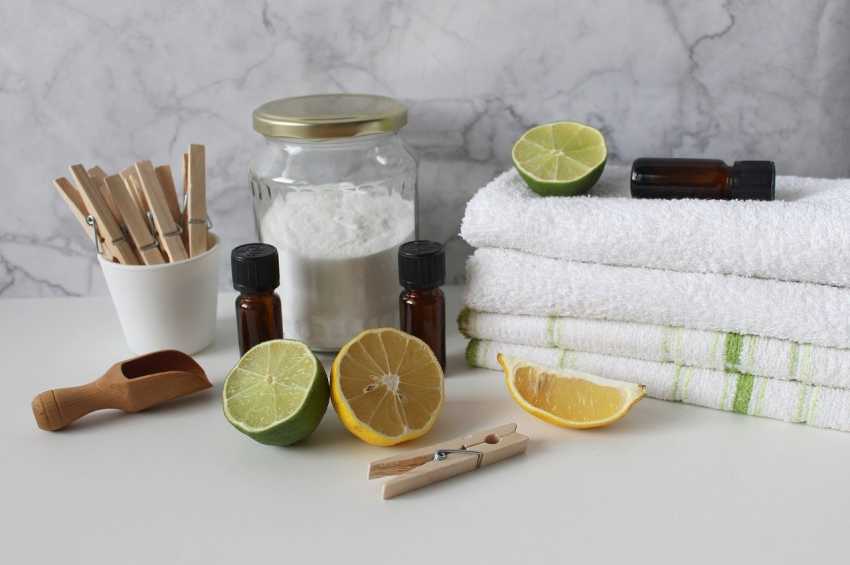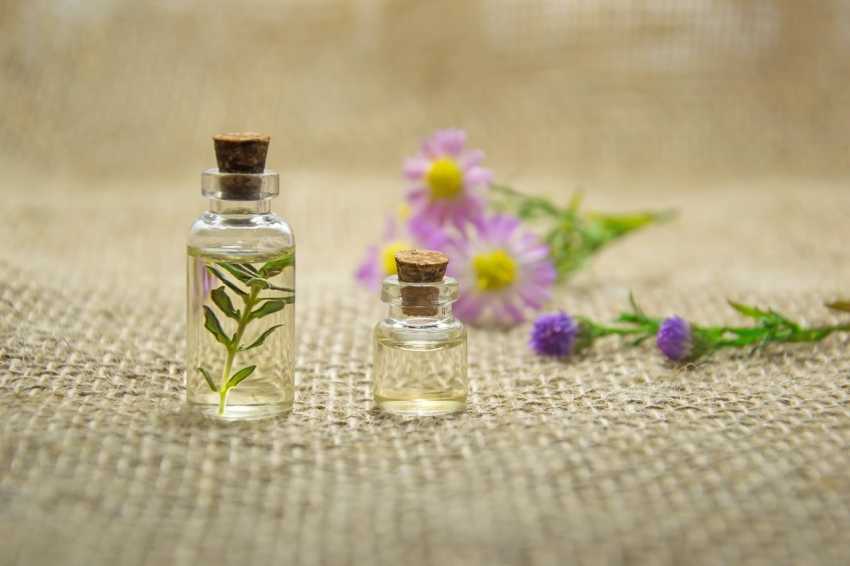If you are just starting your No Poo journey you may wonder is it safe to use baking soda on hair? This article looks in detail at how baking soda can affect your hair.
If used correctly baking soda can be a great way to keep your hair clean and free from harmful chemicals found in traditional commercial shampoos. However, if incorrectly used, baking soda can damage your hair making it dry and brittle. Baking soda is often used in conjunction with an apple cider vinegar rinse to retain moisture.
Baking soda is a very helpful addition to your hair care armory and can be found in most kitchen pantries.
Read on to find out the best way to use baking soda to keep your hair and scalp healthy.
Is It Safe To Use Baking Soda On Hair?
If you are looking for something natural to keep your hair clean, you need look no further than baking soda.
Traditional commercial shampoos often contain sulfates, silicones, and parabens which are not only bad for our hair, but also for the environment.
Baking soda is completely natural and can leave your hair clean without being used every day as you would with traditional shampoo.
Is baking soda for hair good or bad?
There are many people that will tell you how much their hair has improved since swapping out traditional shampoos for a more natural approach using baking soda.
Take a look at the list below to find out how baking soda can help you and your hair:
Pros
There are many benefits of washing hair with baking soda. Below are some of the key benefits:
1. No Synthetic Chemicals
Baking soda is all-natural, since it does not contain any of the following:
- Sulfates
- Silicons
- Parabens
- Fragrances
2. Gentle Exfoliation
Effective exfoliation means that dead skin cells are removed successfully from your scalp leaving it healthier and less prone to dandruff and other skin ailments.
3. Cleansing
Baking soda can remove dirt from your hair naturally.
4. Build-Up
Using baking soda on your hair can remove all types of build-up in a gentle way.
5. Growth
So, does baking soda help hair grow much? This question is often open to debate.
If using baking soda has improved the health of your scalp, it may appear that your hair grows more.
However, there is no scientific evidence to back this up, only anecdotal evidence from users.
6. pH Levels
Your hair and scalp are normally a little acidic, so using baking soda which is slightly alkaline will bring you back toward neutral.
7. Versatile
Baking soda can be used on its own, or in combination with other ingredients to clean greasy hair.
As a shampoo, or added to a mask mix, baking soda has many uses.
8. Frequency
Unlike commercial shampoos that are designed to be used every day, if you use baking soda you can stretch your washes to every 7-10 days.
Cons
Baking soda is not a magic bullet, and may not work for everyone.
If you are wondering if should you use baking soda on your hair read on to discover the possible downsides of using baking soda to keep your hair clean.
1. Drying
If you use baking soda too frequently or use too much at one time, you can dry out your hair as it strips all the oils from your head and hair.
2. Breakage
If your hair is already in poor condition, using baking soda could lead to breakage and hair loss if you are not careful.
3. Allergies And Sensitivity
Some people have a bad reaction to using baking soda on their scalp. It is therefore important that you always carry out a patch test before using any new product.
Is it bad to wash your hair with baking soda will therefore depend upon the condition of your hair and scalp, to begin with. Plus, the frequency and amount of baking soda you use when washing your hair.
How Often Can I Wash My Hair With Baking Soda?
Unlike traditional commercial shampoos, if you are using baking soda, you should try to leave a minimum of 7 days between washes.
If you use baking soda more frequently you may find that it has a negative effect on your hair and scalp, with your hair becoming brittle.
Using an acidic rinse after washing with baking soda will help keep your scalp and hair pH balanced.
An Apple cider vinegar rinse is one of the most popular rinses to be used after baking soda washes and will help keep your hair moisturized and soft.
Here’s how to make an apple cider vinegar hair rinse.
How To Use Baking Soda On Hair
Baking soda can be used as a hair cleanser when mixed with water.
Whilst other ingredients can be added, the simplest way to use baking soda is listed below:
Ingredients
- Baking Soda
- Water
Method
- Mix 1 tbsp baking soda with 4 tbsp water in a small bowl.
- Wet hair thoroughly with warm water.
- Spread the baking soda mixture over the mid-section of your hair and massage through to your scalp and the ends of your hair.
- Leave to rest on your scalp for a few minutes.
- Rinse out with cool water.
- Dry by squeezing your hair rather than rubbing it dry.
- Style as usual.
You can add essential oils to this mix, or use an acid rinse after removing the baking soda which will rebalance the pH as baking soda is slightly alkaline and vinegar is slightly acidic.
Read our full guide to using baking soda in your hair.
If you are interested in using essential oils in the mixture, make sure you take a look at our No Poo essential oil list.
How Long Should I Leave Baking Soda In My Hair?
The length of time that you leave baking soda in your hair will depend upon the type of hair you have, and how dirty it is before washing.
If your hair is coarse, curly, and quite dirty, you can leave the baking soda mixture on for up to 15 minutes.
On the other hand, if you have thin, delicate hair, then leaving the baking soda on for longer than a few minutes may cause damage to your hair.
If you are in any doubt the best thing to do is to check the porosity of your hair and start with only leaving the baking soda on for a minute or two.
If your hair seems to need longer, you could leave the baking soda on for 5 minutes more when you next wash it, to see if you prefer the results.
Baking Soda Hair Wash Recipe
It is perfectly possible to use baking soda on its own to keep your hair clean.
If you want to give your hair an extra boost though, you can add aloe vera to the recipe to help soothe your scalp and moisturize your hair.
Follow the steps below to see how you can have great-looking, clean, and moisturized hair using no chemicals:
Ingredients
- 1 tbsp baking soda
- 1 tbsp aloe vera gel
- Lemon juice
- Water (if desired)
Method
- Mix baking soda with aloe vera to make a paste.
- Add a squeeze of lemon juice and stir.
- Add water if the consistency is too thick for your liking.
- Apply to wet hair and massage through hair and scalp.
- Allow the mixture to sit in your hair for 5 minutes.
- Rinse out with cool water until all baking soda and aloe has been removed.
- Dry your hair using the towel method.
The baking soda will remove any grease and build-up from your hair, whilst the aloe vera will soothe your scalp and moisturize your hair (source 1).
This really is a win-win recipe.
How To Use Baking Soda For Hair Dandruff
Baking soda is an exfoliant and this makes it a wonderful help if you are prone to dandruff.
Not only will using baking soda slough off any dead hair cells, it will remove any build-up on your scalp that is limiting your new hair growth.
Baking Soda Vs Baking Powder For Hair
There is additional acid added to baking powder, so it would not be a perfect partner for your hair long term.
One-off use may do little damage and should clean hair successfully, but long-term use may cause damage to the hair shaft and irritate your scalp.
How To Fix Baking Soda Damaged Hair
If you have overdone the baking soda on your hair and it has turned brittle and fragile do not despair!
It is unlikely that you will have done any permanent damage and there are ways to help your hair after too much exposure to baking soda.
Here are a few ways you can fix baking soda damaged hair:
- Oil: Apply oil to your hair for up to an hour before shampooing, and wrap your head in a warm towel to help the oil seep into each hair.
- Masks: Hair masks, especially those that contain honey or avocado will help to nourish your brittle hair.
- Rinses: Rinsing with tea (remember to use light-colored tea for light hair) after shampooing can help bring your hair back to life, and give your hair an extra boost of shine whilst your scalp recovers and renews your hair (source 1).
If you decide to have a break from using homemade shampoos whilst your hair recovers remember to use shampoos that do not contain any of the following:
- Silicons
- Sulfates
- Parabens
That way you will not have to go through the transition phase when you are ready to No Poo DIY once more.
Conclusion
This article explores the many queries that arise, regarding is it safe to use baking soda on hair?
Hopefully you will be able to decide the answer to can I use baking soda on my hair by understanding that whilst baking soda is a fantastic cleaning agent, you need to be careful about the amount you use, and how often.
Baking soda now and again to remove build-up can be a useful addition, especially if you have coarse, curly hair.
Using an apple cider rinse afterward is also very important to keep your hair correctly pH balanced.
If baking soda is not for you though, there are many other No Poo recipes that can keep your hair journey natural.



